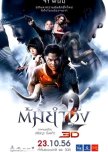
"You've lost your elephant again!?!"
Tony Jaa had to rescue his elephant little brother once again in Tom Yum Goong 2. Just as in the original, the story was a thin construct, simply there to let Jaa shine. This time he stayed in Thailand when he faced the dastardly devils who stole his elephant.Kham’s elephant is stolen (again!) by a bad guy who is working for a badder guy. When Kham arrives at his lair, the bad guy is dead and his two nieces skilled in martial arts think Kham did it. The cops have already been called to set him up so he has Sue Sue and Ping Ping (Jeeja Yanin) after him as well as the police force. Sgt. Mark, now working for Interpol, arrives on the scene. Kham ends up with what looks like the entire population of Bangkok chasing him on foot, motorcycle, and car! The Big Bad, LC, wants Kham to help him disrupt the peace process taking place in Bangkok for Kantana, a country divided. With his life and the life of his elephant on the line Kham has to find a way out or at least a way through the formidable fighters standing between him and his elephant.
The story, much like the first one, had plot holes galore. The acting was adequate. None of that was too important. Watching Tony Jaa and Jeeja Yanin fight was more than enough reason to hit play.
I’d read numerous complaints with people unhappy that Tony used wires and CGI in this film. While it was great he did amazing stunts without either in previous films, at 37, I didn’t understand what the big deal was. Jet Li, Donnie Yen, and Jackie Chan all used fighting enhancements, especially as they aged. It makes for more fantastical if not realistic fights. The wires and CGI didn’t bother me, what did was the almost indestructible nature of Kham, The Big Bad, and the #2 bad guy. In the original, Kham took people out in their vulnerable places and when people went down, they stayed down. Regardless of how they staged them there were several creative fights. The motorcycle battle and an electrically charged confrontation were quite creative. Jeeja Yanin took a backseat to Tony in the fights, but was still able to demonstrate what makes her an exciting fighter.
Tom Yum Goong 2 had a more polished look than the first film, but I missed the intense fight choreography. Unless the bad guys were zombies, I’m not sure how they kept getting up again and again. Apparently, Kham wasn’t hitting them very hard because even a hardened body is not indestructible. Kham also seemed made of impervious rubber. Having said that, I always enjoy watching Tony Jaa fight and this was no exception. Delephantly (couldn’t resist an elephant pun!) for Jaa and martial arts fans only.
3 March 2024
Was this review helpful to you?
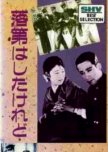
"What does flunked mean?"
I Flunked, But… was one of Ozu’s early silent films about university life. It was a warmhearted story demonstrating life’s ups and downs during and after university.Shomochi and his four buddies don’t take things too seriously as they cheat during exams and spend the evening before the big final exam cramming. Shomochi is the leader helping the others to study. He also prepares his white shirt as an answer guide. Nothing is ever that easy, especially when the house mom inadvertently collects the cheat sheet shirt along with the dirty clothes and gives it to the laundry services. The roommates panic at the loss. Much to everyone’s surprise the four roommates pass while Shomochi fails. The boys are sad for their friend, but Shomochi is devastated to not be able to graduate. Shomochi receives comfort from an unexpected source and finds his path toward adulthood and confidence. The four graduates discover the harsh reality of a disastrous economy where their diplomas mean very little.
Just as bachelor Ozu made numerous films about marriage and family life, he never attended university, so his take on it was more what he envisioned it to be than what he’d experienced. I enjoy Ozu's silent films, his style was more mobile. People moved naturally and looked at each other, not the camera, when they were talking. He wasn't rigid with filming from the mat and some shots were filmed from a higher position. The comedy felt organic and not forced. The boys had many humorous moments without delving completely into slapstick. I did miss his meticulously designed sets with the spare compositions. Of course, these were college boys and cluttered rooms were more realistic. An American movie poster and American university pennants decorated the walls. Ozu's teapot did receive prominent placement in one shot!
While there were many comedic moments, they alternated with sadness and discouragement. University life felt more insular. When the graduates faced the unforgiving economy, they were the ones needing help and encouragement. “Why did we have to graduate so fast?” Shomochi, on the other hand, moved toward maturity and finding joy in the moment.
This film shared the bonds formed from late night study sessions and walking arm and arm to a dance beat. Love brought encouragement in the darkest moments as did friendship. Maturity became a path adversity set them on. I Flunked, But… asked what it means to fail, and if one fails…what next? What happens when you do everything right but still can’t succeed? Ozu left some of those questions unanswered for the students who sought to find happiness amidst the sorrow and victory from failure.
25 February 2024
Was this review helpful to you?
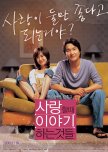
Sometime love ain't enough, and sometimes it is
Solace is a difficult movie to pigeonhole. While it is a romance, the leads spend large amounts of time apart. The pacing is slow like a slice of life and there are troubles enough for a melodrama. The leads involved occasionally find solace with each other, a gentle spot far removed from their daily grueling challenges.Somehow Lee Hye Ran has inherited her deceased father’s massive debt. I don’t understand Korean law and how it ended up with her and not her mom. Be that as it may, Hye Ran is drowning in debt and hounded by her father’s creditors. She runs a clothing shop where she often sells counterfeit clothing. Her sister is pregnant and getting married, adding to her financial concerns. Meanwhile, In Ku is a pharmacist living with his mother and mentally impaired brother, In Seob. His marriage plans fell through when the bride’s family forbade them to marry because of the brother’s condition. Neither Hye Ran nor In Ku are looking for love but fate insisted on throwing them together on several occasions. The two find comfort in each other’s company and arms, but regardless of their feelings, Hye Ran’s debt doesn't disappear and In Seob’s needs don't lessen.
Solace was a realistic look at two people for whom life could be a difficult grind. Realistically, love didn’t conquer all and solve all their problems. The film wasn’t all dreary and pessimistic. Both people were reminded of what they were missing. It instilled in them a desire to find joy in their lives whether it was listening to a familiar song or taking a hike. Speaking of music, it was a blast from another past to see a Walkman and a car with a cassette player in it. Both Hye Ran and In Ku had responsibilities they could not be released from. Opening their hearts to each other, helped them to open them to others. Sometimes love can be expressed in a myriad of ways, Solace explored love in different relationships, the joy it can bring, and the loving sacrifices people make for each other. While not a traditional romance, it was a film that stayed true to itself.
24 February 2024
Was this review helpful to you?
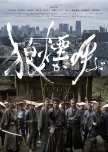
An heirloom's hidden past...
Wolf’s Calling is a stylish short film by director Toyoda Toshiaki with no dialogue. It is truly a mood piece bordering on samurai music video. This is the first film in his Resurrection trilogy followed by The Day of Destruction.A young woman discovers a rusty revolver in a box and takes it out. The memories imbued in the cold steel open up for the audience. Several samurai gather at the Mountain Resurrection Temple-Wolf. Soldiers in blue uniforms join them shouting, the only human sounds in the film. A woman’s sash and hairpin are laid out by one samurai and another carries a child’s toy implying the reasons for their solemn assembly. They silently form ranks with knowing glances. Drums echo the sounds of the approaching enemy. Weapons are drawn as well as the revolver.
An impressive cast lent weight to the performances making me wish this had been a full-length film. While the samurai might have been avenging loved ones, the real inspiration for the film had more to do with Toyoda’s arrest for possessing an illegal firearm, cleared up when it was shown that it was a family heirloom dating back to WWII. Like him, when looking at family heirlooms I wonder about the stories and people behind them.
Though Wolf’s Calling was a short film, the shots of the warriors walking through the old growth forest to the temple were resplendent. The temple was used in this film and The Day of Destruction, I have yet to watch the third film. The Young American revolver style was first made in 1905 which if they did their homework would help to date the action in the past. The music filled in for the dialogue conveying the urgency and determination of the men involved. The body language of the actors also conveyed their deadly resolve.
The film is so short that I watched it twice, enjoying it more the second time. The acting, scenery, and music gave the glimpse into the family’s past a depth that in lesser hands would have fallen flat. After watching Wolf’s Calling and The Day of Destruction which were both low budget films, I’m looking forward to trying more of his work. If you’ve never watched a silent film this might be a good gateway film.
23 February 2024
Was this review helpful to you?
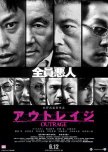
"You know you are dealing with the yukuza, right?"
Outrage began the trilogy focusing on director Beat Takeshi’s traditional yakuza Otomo. The film could become wearisome as betrayal after betrayal ended in gruesome deaths for those up and down the yakuza ladder of power.The film’s plot could be hard to follow, or at least all of the players, as the Sanno family chairman started maneuvering all of his family’s subfamilies and tributaries, not realizing he was being played as well. The Murase family is in the chairman’s sights and soon the murders and torture scenes are ongoing. Even the ambassador from Ghana is dragged into their schemes. Dental equipment, a giant snake, chopsticks, knives, guns, and bombs. No one is safe as brother turns against brother, and even girlfriends are hunted down. There truly is no honor among thieves. Or among the police. Tokyo’s finest looked the other way and counted the money in their envelopes as the bodies started dropping.
My biggest problem with Outrage was that there was no one to feel sympathy for, as twisted as that sounds when watching a gangster movie. Everyone could have died a gory death, and many did, but it really meant nothing. They were all killers looking to make a buck and gain more power. Otomo had the old yakuza honor thing going for him, but he was just a deadly pawn easily used because he followed orders without asking questions for much of the movie.
Outrage had moments that were entertaining and the big plot reveal at the end helped to explain some of the mayhem. Character development of a few key figures would have helped enormously. Otherwise, it just felt like random people getting chopsticks jammed in their ears or eating bullets for lunch. In the end, killers killed killers who killed killers who killed killers…
17 February 2024
Was this review helpful to you?

"Bitterness has its own flavor"
Coffee or Tea was a light hearted comedy about three young men who were at different places in their lives where their dreams were concerned. One had given up on his dreams and life. The second man was enthusiastically ready to bet everything on his dream. The third was swimming in circles with his dream, held back by his relationship with his father. They met up, forged a friendship and business that would guide them all in the same direction and help them each to grow as individuals.Wei Jin Bei is at the end of his rope after his most recent failed business attempt. Unable to sleep, he’s ready to give up on life when effervescent deliveryman Peng Xiu Bing steps in. Peng is going to his remote hometown to begin his own delivery business and takes an extremely reluctant Wei with him. Peng’s village relies on growing tea, but with the depressed prices has lost most of its young people. Peng is determined to reinvigorate the people and town even when he meets with failure. It will take a chance meeting to help turn both his and Wei’s fortunes around.
Peng Yu Chang as Peng was a bright ball of positive sunshine radiating energy on his more dour buddies. Liu Hao Ran played the glum business brains from Beijing transformed by the small village. He often seemed obscured by his floppy hair and large glasses. Yin Fang’s Li Shao Qun had the least development as the rebellious coffee grower who was alienated from his father. The acting wasn’t particularly nuanced, but then again, neither was the story. Along with the business elements there were whimsical animals. What movie doesn't need a talking pig?
Coffee or Tea was a feel good movie about friendship and determination with gentle humor that avoided being cringeworthy for the most part. The film streamlined the story and glossed over the obvious business hurdles as well as the timeline. Most of this could be forgiven as the focus was on the camaraderie of the young men as they healed themselves and their relationships. The film was respectful of traditions and the older generations. At the same time, it also showed that there were times when innovation and new paths must be cut in order to survive as the world evolves. The enduring relationships and new friendships forged proved to be the key to success and reconciliation. While Coffee or Tea could be simplistic and felt low budget, it’s one of those easy movies you can watch if you are looking for a mood lifter.
12 February 2024
Was this review helpful to you?
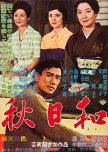
"Love and marriage aren't always the same thing"
Late Autumn was in many ways a reworking of Ozu’s classic 1949 film Late Spring only this time focusing on a widowed mother and her daughter of marriage age. Three friends of her late husband decided they knew what was best by finding not only a mate for the daughter but the mother as well! Regardless of what the women wanted.At the memorial service for their friend Miwa, three old friends, Mamiya, Hirayama, and Taguchi ask Miwa’s widow, Akiko, if she would like help matchmaking for her daughter Ayako. She agrees and after she’s left the men discuss how much each one of them had a crush on Akiko when they were younger, not always in the most respectful ways. The men get to work finding a suitable prospect but run into a wall when they discover Ayako doesn’t want to wed for she fears leaving her mother alone. That knowledge only spurs them on. Mamiya finds out by accident that Ayako has started dating one of the prospects she’d rejected. When he called her on it she said it didn’t change anything. Love and marriage were not necessarily the same thing. The men change tactics and decide to have Akiko marry one of them which turns her small, quiet household upside-down!
Despite their sometimes crass language, the three men’s hearts were in the right place. They wanted the best for Akiko and Ayako. There was more innuendo in this film than most Ozu films. I really didn’t need to hear about the men’s “itches”. Akiko and Ayako had a close relationship that was tested. Fortunately for all involved, Ayako’s friend, Yuriko, stepped in and sorted the men out in the best scene of the whole movie. She then went to work on the mother and daughter.
Ayako feared marriage would cause her to lose her friends as she’d seen with her own friends that married. She also feared becoming distant from her mother and leaving her mother alone, with no one. Despite not being as independent as Yuriko, she enjoyed her independence and feared losing it, too. Akiko, with Hara Setsuko playing her, was the epitome of grace and generosity. The three men were all a little in love with her which even their wives knew.
Ozu’s palette was much the same-muted colors highlighted with green, yellow, and his favorite color red. His red teapot was replaced by a prominent yellow one here. The steady camera set low with the people moving instead was a constant as well as the intricately composed frames. Many of the same players from previous films showed up here like old friends. There’s a comfort and familiarity with his post-war films.
Despite having covered much of the same topics in previous films-the changing Japanese family, aging, and loneliness, he still had more to say. I enjoyed this film more than Late Spring with Hara as the mother instead of the daughter. Okada Mariko’s presence gave the film a jolt of energy when the talking began to go in circles. As bachelor Ozu aged, so did it seems, the boys from his silent films. Still incorrigible with good hearts, only now old men sitting together drinking sake and meddling in other people’s lives…with good intentions of course.
6 February 2024
Was this review helpful to you?
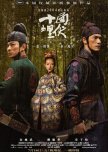
"The wind breezes through without a trace"
House of Flying Daggers was a movie where style over substance wasn’t a failing. Zhang Yi Mou pulled out his magical color palette and bathed the screen with gorgeous deep hues. Beautiful people wore luxurious costumes as they danced, fought, and loved in the kaleidoscope background. This director knows how to hit all my film watching pleasure spots through sight and sound.The plot is fairly simple. With a failing and corrupt government, the underground House of Daggers grew into being. Stealing from the rich and helping the poor while fighting against the crooked officials they’ve earned a target on their backs. Jin and Liu are tasked with bringing down the Daggers’ leader. They suspect the new blind dancer at the Peony Pavilion is the daughter of the recently deceased leader and seek to use her to guide them to the alliance through subterfuge. Jin goes undercover as someone taken with her beauty and breaks her out of jail. The only problem is, “who’s zoomin’ who?”
The thin storyline worked largely due to the commitment of Zhang Zi Yi and Kaneshiro Takeshi in playing adversaries pretending to have fallen for each other, especially when their true feelings begin to trip them up. Their relationship evolves from brutal possession to erotic whispering caresses. Treachery and zealous devotion played out both personally and professionally for a number of people. The twists and turns may not have been earthshattering but they were entertaining. They also showed how little value was put on the lives of the pawns in the game between two powerful forces.
Tony Ching choreographed numerous wire-fu fights with swords and speeding daggers. The battle in the bamboo forest was stunning. Soldiers crawling up and down the verdant trees while also using them as weapons was enthralling. For the most part people were shown full body length in order to observe the intensity of the fights. When the bamboo shatters or impales it was both beautiful and shocking. The singing daggers could bend in flight and bank off of objects to land their targets. While not a fight, Zhang Zi Yi’s dance with the drums was breathtaking and quite memorable. Zhang Jianmin’s dance choreography flowed with power equal to any fight in the film. The percussion ballet was as magnificent as the bamboo one.
Umebayashi Shigeru’s score could be wistful one moment and heart pounding the next. Romantic, playful, traditional and modern, the music enhanced every scene. Zhang’s use of color never ceases to amaze me. Whether in the feminine Peony Pavilion with pink dresses and butterflies or the autumnal trees and falling leaves of the forest, he never neglects the important visual aspects of his films. As mentioned before, the emerald bamboo battle was one of the most iconic scenes from his films.
Mei and Jin’s life and death decisions were made in the sheer elegance and poetry of Zhang’s visual style accompanied by a haunting score. The plot involving both personal and national passions played out in the forests, fields of flowers, and snow. It’s hard to say which was more captivating, I tend to lose my sense of perspective when immersed in Zhang Yi Mou’s world.
3 February 2024
Was this review helpful to you?
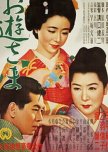
"I never realized how heavy this kimono was"
Love triangles can be problematic, especially when communication isn’t encouraged and everyone is guided by rigid social principles. Two loving sisters ended up in a trap of their own making when society denied them the freedom to make their own choices in Miss Oyu.Shinnosuke has resisted every marital prospect until Shizu’s entourage approaches his house and he falls in love at first sight. The only problem---the woman he fell in love with was Shizu’s older widowed sister, Oyu. Known for her beauty and elegance, Oyu was tied to her late husband’s family and couldn’t leave because she had given birth to the heir. Oyu pushes for Shizu to marry Shinnosuke because she wants to stay near her sister. Before long the three are inseparable. Unknown to Oyu, Shizu announced on her wedding night to her husband that she intended to be married in name only because she knew he loved her sister and her sister loved him. This sisterly sacrifice led to more heartache for all involved, primarily for the sisters.
Director Mizoguchi and cinematographer Miyagawa created a treat for the eyes in black and white. The scenery, sets, and costumes were luxurious. Similar to Kurosawa, he framed his scenes with action in the foreground and background, giving the scenes visual depth and interest. The traditional music haunted the film with melancholy as the characters dealt with their repressed emotions.
Tanaka Kinuyo and Otowa Nobuko were the heart of the film, conveying sisters deeply committed to each. Hori Yuji looked like he just came along for the ride. His immature and passive Shinnosuke barely registered on the screen when the two women were around. Was Oyu truly, passionately, in love with Shinnosuke? As far as the story went, it was difficult to determine what Oyu’s feelings truly were. She kept them neatly tucked. Was she in love? Flattered? Or oblivious to Shinnosuke’s love? When scandal threatened, she set the married couple straight in what their obligations to each other were. What drove Shizu’s need to sacrifice her own happiness and future? What debt could she possibly owe her sister? The writers weren’t telling and the actors weren’t giving many clues either as to why the trio was willing to dance on the edge of a knife where any mistake would lead to devastating scandals and familial reprisals.
Miss Oyu was visually interesting, the three people tragically caught up in a silent triangle of repressed feelings not so much. Tanaka and Otowa did their best to infuse intensity into the story but were confined by the writers and the film's societal norms.
30 January 2024
Was this review helpful to you?
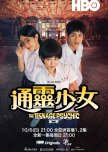
This review may contain spoilers
I enjoyed the first season of Teenage Psychic because as flawed as it was, it had a certain charm. The second season lost that luster for me. The stories didn’t have the same heart to them and the mediocre acting couldn’t cover over those problems.(This review contains spoilers from S1)
The story takes up after the first season, and Xiao Zhen is now seventeen. At the end of S1 she had found her smile and her confidence. At the beginning of S2 she’s back to the mumbling, mopey teenage psychic having lost everything she gained. Even the drama club abandoned her for a new “psychic”. Teacher Kim’s ne’re do well brother is in town and starting his own charlatan temple in a psychic competition for devotees. If all that wasn’t enough, Ah Le is back and in the body of an asthmatic suicidal high schooler to take care of unfinished business.
Fandy Fan as Zhang Yu Xuan/Ah Le must have been given the notes to smile all the time. He began to look exhausted from forcing the tight grins. Guo Shu Yao’s notes must have read, never ever smile or look anyone directly in the eye. This time instead of being at ease with each other, the couple felt awkward. There was no urgency or depth of emotion for the two, knowing their time together was going to be limited. Apparently, Ah Le was able to cure Yu Xuan’s health problems just by mind over matter and working out. Also in the awkward department, after living abroad for 2 years, Xiao Zhen’s mother returned home unaware her daughter had been working as a medium at the temple. She’d wanted Teacher Kim to cure her of her visions. No warm greetings or hugs, it was the strangest reunion. Another awkward familial problem, Teacher Kim reprimanded his brother as being opportunistic but Xiao Zhen’s mentor often sold people things they didn’t need to make a buck. The weekly spiritual problems lacked the dramatic weight of the first season. The storytelling jumped around in an erratic manner siphoning off any emotional punch.
Teenage Psychic 2 was in desperate need of energy and heart. Two mopey psychics were two too many. Three bickering adults were three too many. And if they were going to be bold enough to kill Ah Le off in the first season, let him stay gone after the meet and greet at the end of S1. Forcing another actor to try and capture the character’s charm was a disaster. I would also like to have seen Xiao Zhen continue growing as a young woman and a medium instead of regressing so badly. The message of this season seemed to be the living have to keep moving forward, I wish the writers would have learned that lesson and let these characters do the same.
26 January 2024
Was this review helpful to you?
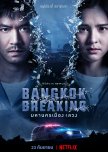
After Wanchai received a desperate message from his brother in Bangkok he grabbed the first bus and headed there. At the same time a reporter, Kat, and her two co-workers were on their way to a gathering for the new CEO of the media company she worked for. At the bus station, worlds collide when a speeding sports car causes a devastating crash there. Due to events that occurred around the crash and at the rescue station, Wanchai suspects foul play. As Kat’s colleague lay in a coma, she determined to follow-up on her senior’s investigation into the volunteer rescue services. Neither had a clue what kind of danger they were walking into and they would have to be careful and lucky to survive.
I was surprised to find that the majority of Bangkok’s rescue services were volunteer based and most workers received very little money. As I watched, it was also apparent they didn’t receive much training either. At a fire, only one person donned turnout gear but with no mask or air tank. No fire truck ever appeared. During a gas leak the rescue teams wore respirators which are of little help in a confined place with high natural gas saturation, there’s not enough oxygen to filter. Plus, many of them weren’t wearing them correctly. With a head wound victim they failed to use a back board, or brace, and they didn’t strap him in so I worried the poor guy was going to slide right off as they carried him. No vitals were taken, no IVs started nor oxygen administered—common tasks for EMTs. About all these volunteers were capable of was CPR, stealing from victims and committing the occasional murder.
The story itself took time to gain any traction as Wanchai and Kat sought out clues separately, not quite trusting each other. As the two spent more time together the romantic music began to swell. Given the number of car accidents, job training and job loss, beatings, and death threats, the romance came across as forced. These two people were in over their heads, romance should have been the last thing on their minds.
If you can’t fight city hall, it’s even harder to fight the wealthy and weird. One of the Big Bads decorated his long beard differently every day and traveled in an updated hippie van. The large cast made it difficult to keep up in the first couple of episodes as the layers of corruption and familial problems were peeled back disjointedly. The acting for the most part was good to serviceable. The good guys, of which there were few, were likeable and the numerous bad guys were easy to hate or even laugh at. There were also several gray characters who were willing to cross the line for their own reasons without understanding the cost of working for villains. I wish that they’d taken the time to give at least two or three characters more backstory instead of just teasing that information.
Bangkok Breaking was mostly entertaining if flawed. The numerous action scenes and rescues helped it move faster when the story bogged down. For me, I found the chaotic rescue squad system fascinating and frightening. If you live with an EMT you are likely to get an earful of all the things they did wrong, if not and you enjoy Thai dramas, this is one to try as it’s a fast watch.
24 Jan 2024
Was this review helpful to you?
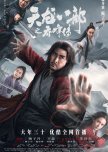
This review may contain spoilers
"Those who had feelings were caught in them"
Donnie Yen starred in and directed Sakra, a wuxia based on Jin Yong’s novel Demi-Gods and Semi-Devils. As I haven’t read the book I’m only critiquing this movie as a stand-alone. Kiu Fung was a man who had to figure out who he was and what he stood for after tragedies and treacheries befell him.The infant Kiu Fung was left on the doorstep of a Song couple and grew up to be a master in the infamous Beggar Gang. After rescuing a caged young man from turning into a sacrifice he returns home only to be accused of murdering a fellow Beggar by the man’s wife. The wife also produces a letter revealing that Kiu is actually a Khitan, the most hated of enemies. He’s not given a chance to refute the “evidence” and ends up turning in his Dog Beating Staff. It goes downhill from there for Kiu as the bodies begin to rack up with everyone blaming him for the deaths. During one of the angry mob scenes, he rescues an injured thief and romance blossoms.
This was one of those movies where it was hard to like any of the characters. Donnie’s Kiu was a masterful fighter but came across as not terribly bright. He was framed and double-crossed on a routine basis. And when it was his turn to communicate and seek the truth he reacted like the Beggar Gang, Shaolin monks, and townspeople had and jumped to an illogical conclusion which led to deadly consequences. The rescued thief, Ah Zhu, had only one job-to be carried around and make big puppy eyes at Kiu.
Parts of the story needed to be explained better. Kiu had stood up for the downtrodden, sought to be moral at all times and yet everyone believed he could murder the people close to him. Was it jealousy? Or were they all simply awful people who refused to hear Kiu’s side of the story? The romance fell flat, partly because of the development on screen but also because the 60-year-old Yen was twice as old as his costar. He came across more paternal or perhaps as a kung fu master to her. I could see him feeling sorry for Ah Zhu and she in turn hero worshipping him, but romance didn’t come across on the screen. And while I’m at it, why would he ever think he could pass for thirty?
There were numerous fights as the world took on Kiu. I understand Yen is 60 and his body has taken enormous abuse through the years. It would make perfect sense to rely on camera tricks and stuntmen to sell the fights. What ended up on the screen were ridiculously undercranked/sped up moves as if The Flash and Quicksilver went at it. When fights are repeatedly sped up in martial arts movies, it usually means the moves were slow or missing their targets. I don’t mind light body work with people leaping and skipping over rooftops, but they seemed rather awkward here. Wuxia “magic” doesn’t bother me either except how many times can you watch people being blown through walls or floors before it becomes exceedingly redundant? I would normally enjoy watching Donnie pummel his opponents but the exciting brawls were few and far between in this one. It didn’t help that before one long drawn out fight, he had to have a drink with anyone who wanted to take him on---which turned out to be everyone. The scene dragged on interminably.
Sakra was watchable, but at 2 long hours, just so. The natural scenery was gorgeous and a couple of fight sequences were entertaining. The rest of the time it was painful watching the hero be slow-witted in thought and artificially accelerated with his fists.
6 January 2024
Was this review helpful to you?
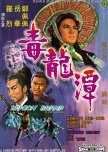
This review may contain spoilers
Cheng Pei Pei played two roles in the wuxia Dragon Swamp written and directed by Lo Wei. She was once again joined by Lo Lieh and Yueh Hua in this tale of deception, disguises, death, and a cursed sword. Fan Ying was seduced and betrayed by Tang Da Chuan aka The White Faced General. Her clan confronted them after she helped to steal the Jade Dragon Sword for her husband. Tang ran off with her son when he lost the sword and Fan was sentenced to 20 years in the terrifying Dragon Swamp. Her sifu agreed to raise her baby daughter. Twenty years later we are introduced to the daughter who looks just like her mother on the night the sword is once again stolen! Along with the rest of the disciples Qing Er is sent to find the cursed sword. She will find the thief, be rescued by the Roaming Knight, and meet the fearsome Swamp Master in short order!
At the age of twenty-three, Cheng Pei Pei aptly differentiated the characters of the older Fan Ying and the adventurous Qing Er. Lo Lieh gave a solid performance as the thief and Head of Security for a powerful clan. Yueh Hua roamed in and out of the story as the nameless swordsman still searching for his true love, Fan Ying. I was happy to see Ku Feng show up as an old master, almost unrecognizable in a wild white wig. Huang Tsung Hsun played the despicable Tang Da Chuan who had a habit of abandoning and murdering his wives in his quest for ultimate power.
The sword fights were standard for the era, with one fight between Pei Pei and Lo Lieh and a host of others almost looking like a dance from a sword fighting musical. If it’s a Cheng Pei Pei film it needs a fight at an inn and this film came through. Qing Er faced off against an assortment of assassins as she ordered her dinner including ones played by Simon Yuen, Fan Mei Sheng, and Han Ying Chieh.
Where the film struggled was the execution of the story. Characters wandered in and out. The cursed sword comically changed hands numerous times. On the positive side, the sets and scenery were all eye catching, including the Dragon Swamp. The special effects were for the most part average for the time. It was fun how they made the sword glow green. The masters were able to practice some magic and Pei Pei had a nifty party trick with drinks. The only area where the special effects were truly lacking was the boat trip through the swamp where there be dragons. Gojira’s creators did a better job with those effects from the same time period.
Despite some of the story and effects shortcomings Cheng Pei Pei lit up the screen as she always did. Her turns at both the mother and daughter were well done. Though flawed, the movie was entertaining. If you enjoy old martial arts films, this is one worth trying.
14 Dec 2023
Was this review helpful to you?
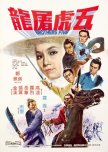
This review may contain spoilers
"It will be invincible!"
Brothers Five was a Shaw Brothers extravaganza featuring Cheng Pei Pei, Lo Lieh, Chang Yi, Chin Han, Yueh Hua, and Kao Yuen. Unlike some of the SB movies with visibly break-away sets and cheap costumes, the sets, costumes and scenery were all high quality for the genre.Yan Hsing Kung (Cheng Pei Pei) is on her way to the Tenglong Villa aka The Flying Dragon Villa when Kao Wei stops the driver of her carriage from whipping the horse and man who rented it to him to death. Turns out he is one of the 5 Kao brothers (#4) who were separated when they were young after their father was murdered by the current owner of Tenglong. Each brother has a horizontal scar across his hand so that they would be able to recognize each other. Yan’s father had saved the boys with each one of them going to a different place to live. Yan has been searching for them to bring them together. Brother #2, Kao Hao, had become a blacksmith with no martial arts skills but could swing a mean hammer. He enters into a fight with Tenglong men and heads to the Villa for personal revenge. Brother #1, Kao Chih, a scholar from Shaolin, runs afoul of Tenglong minions in town and also makes his way to the villa. Outnumbered and outmatched the two brothers are saved when Yan intercedes. Brother #3 owns an escort service which is ambushed on his way to the temple to meet up with Yan. Yan was only to stop one brother from attacking Tenglong Villa by himself which became repetitive, even comical after a while. Finally, #5 Kao Hsia, turns out to be a flamboyant thief who robs from the rich. Now the band is all together and introduced to each other. The five are not skilled enough on their own to take down Lung and his Golden Sword. Much to their amazement, Yan has a secret manual that describes the Invincible Five Tigers as One move! What luck! There are exactly five brothers!
The cast was amazing. The heroes and villains, with the exception of Kao Yuen, gave strong performances. Lo Lieh was a delight as the impish thief. Cheng Pei Pei was charismatic as the woman who fulfilled her father’s vow to find the brothers, reunite them, and point them in the direction of Lung to avenge his old friend’s death. Tien Feng as the Big Bad could always be counted on to turn on the menace. Wang Hsieh and Ku Feng joined him as creative weapon carrying baddies.
Sammo Hung had a tiny part as one of the escort members. He also choreographed the fights along with Simon Chui. Many of the numerous fights were filmed at a distance and involved large numbers of men fighting one or two heroes. For 1970 the sword fights looked quite good and I liked that they weren’t move two steps, cut, edit, add another sequence. You could see some misses and the actions could be slow at times, but overall, the actors were required to remember complicated choreography while fighting in large groups, in long unedited shots, with a variety of weapons being used. Copious amounts of blood also flowed, not Chang Cheh amounts, but enough to make it look realistic. Cheng Pei Pei is one of my favorite female kung fu actors. Not only could she move well and sell the action, she could also act which was not always common in this genre. I loved that she came to the men’s rescue on more than one occasion. Chang Yi was the strongest fighter of the heroes even if his acting wasn’t as strong as Lo Lieh’s. Lo had a particularly funny and heroic encounter when he first visited the Villa. This cast was huge, and the number of recognizable stuntmen from the credits was staggering. Most of the fights were large groups and the stuntmen sold the action-flipping, flying, and getting slammed to the ground. Trampolines and wire work were utilized with the wire work not always appearing fluid. The weakest element of the fights was the Invincible Five Tigers as One skill. It was laughably bad, as in I laughed hard when they finally used it.
Brothers Five would have gone down as one of my favorite old kung fu movies except for what seemed like a counterintuitive reason---the fights were too long. As each brother was introduced, each had to fight a gang of men in long drawn-out battles. After the second fight it began to wear thin. Clocking in at around 100 minutes, the majority of the time was used for these protracted fights. Had they trimmed the fight scenes I would have rated this much higher. The cast alone was like catnip to me. For fans of old martial arts films, this is definitely one to try. Even with the redundant fighting at the villa’s gate it was an entertaining movie.
12 Dec 2023
Was this review helpful to you?
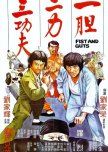
This review may contain spoilers
Fists and Guts was a frustrating combination of inane comedy and entertaining, well-choreographed fights. How much you enjoy this film may depend on your ability to tolerate slapstick and haphazard storytelling. Gordon Liu in a terrible wig worked with two inept conmen to try and recover family heirlooms stolen by a treacherous housekeeper. The conmen were played by the director Lau Kar Wing and usually bad guy Lee Hoi Sang. The story wandered around even going so low as to have the conmen travel to a leper colony. The story itself was redundant as they searched for the “housekeeper” who could disguise himself, with Team Inept choosing the wrong people or being led astray by the real thief. Most of the pointless endeavors were designed to highlight the comedy which fell flat for me.
Just past the halfway mark the fights kicked into gear, if not the story. You had to slog through a gross poop scenario to get that far though. Gordon Liu and Lai Kim Hung had an inventive silent fight as they both tried to steal a jade Buddha from a general’s well-guarded home. They stifled cries and prevented vases and furniture from crashing to the ground as they engaged in a desperate fight. Later, Gordon had to teach the two conmen moves that would help them beat the booby-trapped system in the “housekeeper’s” secret lair. This was one of the few times the fools came in handy. The highlight of the film was the life-or-death fight between Gordon and Lo Lieh. By this time the real identities of both men and their motivations were revealed and the ridiculous wigs were removed. This was one of Lo’s best fights I’ve seen, Gordon and the Laus brought out the best in him. The moral of the tale wasn't as righteous as they might have thought it was.
The story was aggravatingly circular and the comedy could be irritating, albeit those who love old kung fu comedies may be enraptured by the comedy in this film. Regardless of your threshold for slapstick, if you enjoy kung fu movies from this era, the second half of the film shone through with at least two worthy fights to watch.
6 Dec 2023
.
Was this review helpful to you?

 54
54 191
191 11
11






















